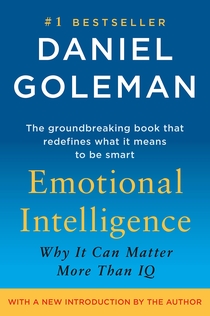
Emotional Intelligence
Emotional Intelligence Does IQ define our destiny? Daniel Goleman argues that our view of human intelligence is far too narrow, and that our emotions play a major role in thought, decision making and individual success. Self-awareness, impulse control, persistence, motivation, empathy and social deftness are all qualities that mark people who excel- whose relationships flourish, who are stars in the workplace. With new insights into the brain architecture underlying emotion and rationality. Goleman shows precisely how emotional intelligence can be nurtured and strengthened in all of us. Working with Emotional Intelligence Do you want to be more successful at work? Do you want to improve your chances of promotion? Do you want to get on better with your colleagues? Daniel Goleman draws on unparalleled access to business leaders around the world and the thorough research that is his trademark. He demonstrates that emotional intelligence at work matters twice as much as cognitive abilities such as IQ or technical expertise in this inspiring sequel.
See all
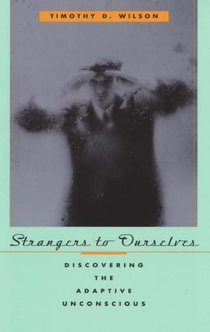
Strangers to Ourselves
"Know thyself," a precept as old as Socrates, is still good advice. But is introspection the best path to self-knowledge? Wilson makes the case for better ways of discovering our unconscious selves. If you want to know who you are or what you feel or what you're like, Wilson advises, pay attention to what you actually do and what other people think about you. Showing us an unconscious more powerful than Freud's, and even more pervasive in our daily life, Strangers to Ourselves marks a revolution in how we know ourselves.
See all
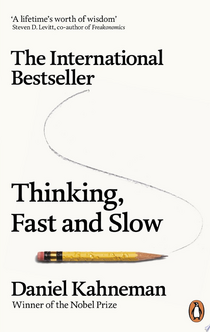
Thinking, Fast and Slow
The phenomenal international bestseller - 2 million copies sold - that will change the way you make decisions'A lifetime's worth of wisdom' Steven D. Levitt, co-author of Freakonomics'There have been many good books on human rationality and irrationality, but only one masterpiece. That masterpiece is Thinking, Fast and Slow' Financial TimesWhy is there more chance we'll believe something if it's in a bold type face? Why are judges more likely to deny parole before lunch? Why do we assume a good-looking person will be more competent? The answer lies in the two ways we make choices: fast, intuitive thinking, and slow, rational thinking. This book reveals how our minds are tripped up by error and prejudice (even when we think we are being logical), and gives you practical techniques for slower, smarter thinking. It will enable to you make better decisions at work, at home, and in everything you do.
See all
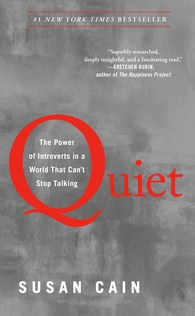
Quiet
Demonstrates how introverted people are misunderstood and undervalued in modern culture, charting the rise of extrovert ideology while sharing anecdotal examples of how to use introvert talents to adapt to various situations.

Career Paths in Psychology
Career Paths in Psychology is a must-have resource for students contemplating a career in psychology, for psychologists considering switching between areas of psychology, and for professionals thinking of switching to psychology from another field. In this comprehensive anthology, authors selected for their distinction in their chosen careers offer their professional - and personal - perspectives on 19 different graduate-level careers in psychology. Few fields of study offer more career opportunities than does psychology, and readers will find thoughtful discussions, leavened with tips and insights gained from personal experience, on the full range, including (to name only a few) academia, clinical psychology, health and school psychology, clinical neuropsychology, and government service. Each chapter discusses the nature of the career, its advantages and disadvantages, how to prepare for it, typical activities, ranges of financial compensation, opportunities for employment, and the personal attributes needed for success in the career. ""Day in the life"" discussions give readers a glimpse into the prosaic realities, challenges, and rewards of each career that the lab or lecture hall rarely provides. Reprinted eight times since the publication of the first edition in 1997, ""Career Paths in Psychology"" is recognized as the ""go-to"" sourcebook for anyone seeking a candid portrait of different careers in this ever-changing field. The second edition has been expanded (discussions of five new careers added) and updated to reflect current trends and changes in the field.
See all
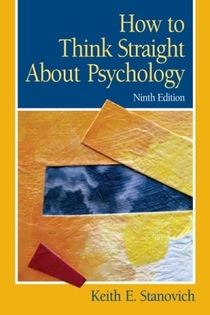
How to Think Straight about Psychology
For introductory psychology courses at two year or four year institutions. Also for specialty classes throughout the discipline that focus on critical thinking, science vs. pseudoscience, and discrimating valid research in the field. Keith Stanovich's widely used and highly acclaimed book helps students become more discriminating consumers of psychological information, helping them recognize pseudoscience and be able to distinguish it from true psychological research. Stanovich helps instructors teach critical thinking skills within the rich context of psychology. It is the leading text of its kind. How to Think Straight About Psychology says about the discipline of psychology what many instructors would like to say but haven't found a way to. That is one reason adopters have called it "an instructor's dream text" and often comment "I wish I had written it. It tells my students just what I want them to hear about psychology".
See all

The Psychopath Test
What if society wasn't fundamentally rational, but was motivated by insanity? This thought sets Jon Ronson on an utterly compelling adventure into the world of madness.Along the way, Jon meets psychopaths, those whose lives have been touched by madness and those whose job it is to diagnose it, including the influential psychologist who developed the Psychopath Test, from whom Jon learns the art of psychopath-spotting. A skill which seemingly reveals that madness could indeed be at the heart of everything . . .Combining Jon Ronson's trademark humour, charm and investigative incision, The Psychopath Test is both entertaining and honest, unearthing dangerous truths and asking serious questions about how we define normality in a world where we are increasingly judged by our maddest edges.
See all

The Little Book of Psychology
If you want to know your Freud from your Jung and your Milgram from your Maslow, strap in for this whirlwind tour of the highlights of psychology. Including accessible primers on: The early thinkers who contributed to psychological ideas and the birth of modern psychology Famous (and often controversial) experiments and their repercussions What psychology can teach us about memory, language, conformity, reasoning and emotions The ethics of psychological studies Recent developments in the modern fields of evolutionary and cyber psychology. This illuminating little book will introduce you to the key thinkers, themes and theories you need to know to understand how the study of mind and behavior has sculpted the world we live in and the way we think today.
See all
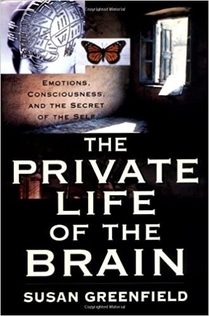
The Private Life of the Brain
What is happening in the brain when we drink too much alcohol, get high on ecstasy or experience road rage? Emotion, says internationally acclaimed neuroscientist Susan Greenfield, is the building block of consciousness. As our minds develop we create a personalized inner world based on our experiences. But during periods of intense emotion, such as anger, fear or euphoria, we can literally lose our mind, returning to the mental state we experienced as infants. Challenging many preconceived notions, Susan Greenfield's groundbreaking book seeks to answer one of science's most enduring mysteries: how our unique sense of self is created.
See all
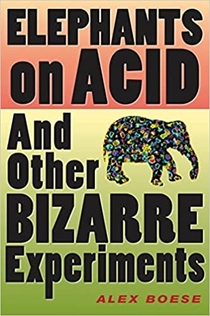
Elephants on Acid
When Tusko the Elephant woke in his pen at the Lincoln Park Zoo on the morning of August 3, 1962, little did he know that he was about to become the test subject in an experiment to determine what happens to an elephant given a massive dose of LSD. In Elephants on Acid, Alex Boese reveals to readers the results of not only this scientific trial but of scores of other outrageous, amusing, and provocative experiments found in the files of modern science.Why can't people tickle themselves? Would the average dog summon help in an emergency? Will babies instinctually pick a well-balanced diet? Is it possible to restore life to the dead? Read Elephants on Acid and find out.
See all

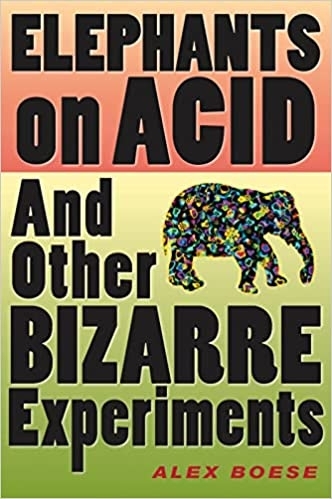








Comments